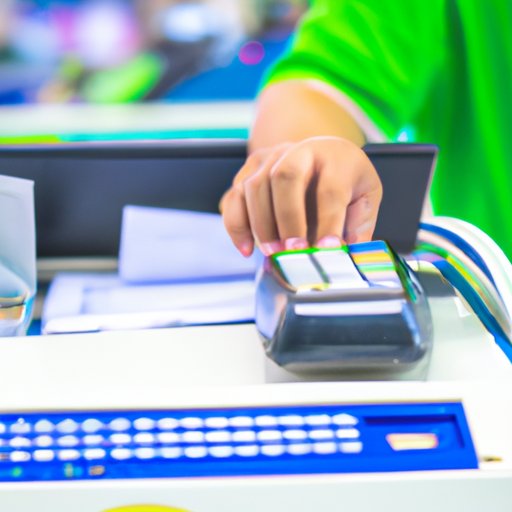Introduction
A cashier’s check, also known as an official check, is a check that is issued by a financial institution and backed by the funds of the institution rather than those of the individual writing the check. It is a secure form of payment that is often used for large transactions such as purchasing a house, car or paying tuition fees.
Process for Obtaining a Cashier’s Check
Cashier’s checks can be obtained from most banks and credit unions. You will need to provide the financial institution with your identification, such as a driver’s license, passport or other government-issued ID, and the amount of money you would like the check to be written for. The financial institution may also ask you to provide additional documentation such as proof of address or a utility bill.
Costs Associated with Getting a Cashier’s Check
The cost of getting a cashier’s check varies depending on the financial institution. Generally, it will cost around $10-$15 per check. Some banks and credit unions have higher fees if you are not an account holder at the institution, so it’s important to shop around for the best deal.
Tips for Choosing the Right Bank or Credit Union for Your Cashier’s Check
When selecting a bank or credit union to obtain your cashier’s check, it’s important to consider the customer service and convenience of the institution. For example, does the institution have branch locations near you, or do they offer online banking services? It’s also important to compare fees and other associated costs between institutions. This can help you save money in the long run.
Examples of When a Cashier’s Check is Necessary
Cashier’s checks are often used for large transactions such as purchasing real estate or cars, paying tuition fees, and making large payments to contractors or vendors. They are a secure form of payment that is less likely to be returned for insufficient funds.
Benefits of Using a Cashier’s Check
Using a cashier’s check offers several benefits over personal checks. First, they are more secure since they are backed by the funds of the financial institution, so there is less risk of the check being returned for insufficient funds. Additionally, they are more convenient than carrying large amounts of cash, and they typically have a quicker processing time than personal checks.
Conclusion
In conclusion, cashier’s checks offer a secure and convenient way to make large payments. They are available from most banks and credit unions, although fees and other associated costs can vary between institutions. When choosing a financial institution for your cashier’s check, it’s important to consider the customer service and convenience of the institution, as well as compare fees and other associated costs. Cashier’s checks are often used for large transactions such as purchasing real estate or cars, paying tuition fees, and making large payments to contractors or vendors. They offer increased security over personal checks, more convenience than carrying large amounts of cash, and quicker processing times.
(Note: Is this article not meeting your expectations? Do you have knowledge or insights to share? Unlock new opportunities and expand your reach by joining our authors team. Click Registration to join us and share your expertise with our readers.)
